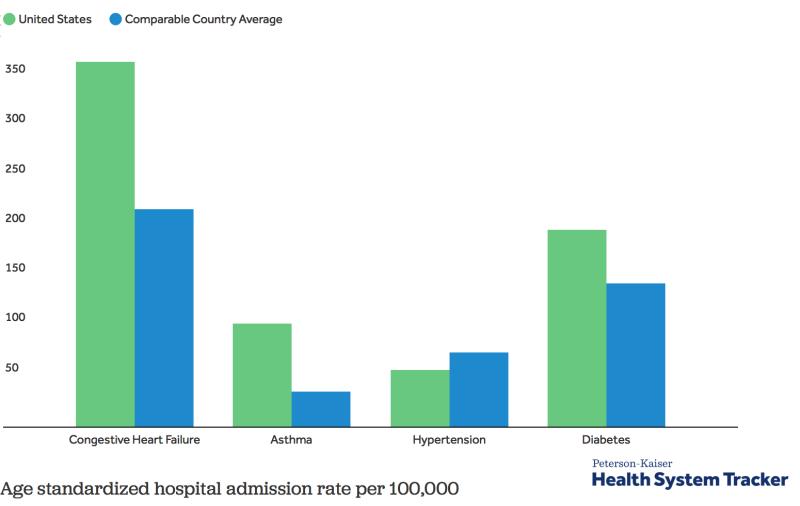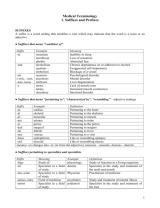How does the quality of the U.S. health system compare to other countries?
The quality of the U.S. healthcare system is a subject of debate and varies depending on the specific aspect of healthcare being assessed. Here's a general overview of how the U.S. healthcare system compares to other countries:
Strengths of the U.S. Healthcare System:
Medical Innovation: The United States is a leader in medical innovation, with many of the world's top pharmaceutical companies, medical research institutions, and innovative medical technologies.
Specialized Care: The U.S. offers access to specialized and advanced medical care in areas like cancer treatment, organ transplantation, and complex surgeries. Many patients from around the world travel to the U.S. for these services.
Timely Access: In some cases, the U.S. healthcare system provides relatively rapid access to certain medical procedures, diagnostic tests, and treatments.
Patient-Centered Care: The U.S. places a strong emphasis on patient-centered care and shared decision-making between healthcare providers and patients.
Challenges and Weaknesses of the U.S. Healthcare System:
Cost: The United States has one of the most expensive healthcare systems in the world, with high healthcare expenditures per capita. This high cost has led to issues with affordability for many Americans.
Healthcare Disparities: Disparities in healthcare access and outcomes persist in the U.S., with differences in health and healthcare outcomes among various racial, ethnic, and socioeconomic groups.
Lack of Universal Coverage: Unlike many other developed countries, the U.S. does not have a universal healthcare system. A significant portion of the population remains uninsured or underinsured.
Administrative Complexity: The U.S. healthcare system is characterized by administrative complexity, with multiple payers, billing systems, and administrative processes, which can lead to high administrative costs.
Health Outcomes: Despite high healthcare spending, the U.S. does not consistently achieve the best health outcomes when compared to other developed countries. Measures such as life expectancy and maternal mortality rates can lag behind those of other nations.
Preventive Care: The U.S. can sometimes fall short in terms of preventive care and public health initiatives, resulting in higher rates of certain preventable diseases and health conditions.
Healthcare Fragmentation: Fragmentation of care, lack of care coordination, and variations in healthcare quality and safety are issues that affect the U.S. healthcare system.
Pharmaceutical Costs: The cost of prescription drugs in the U.S. can be significantly higher than in many other countries, leading to concerns about affordability and access to necessary medications.
It's important to note that healthcare quality and performance can vary widely within the United States. Different states, regions, and healthcare facilities may provide varying levels of care. Additionally, the COVID-19 pandemic has brought some of these issues into sharp focus, highlighting disparities in healthcare access and outcomes.
Efforts to reform and improve the U.S. healthcare system are ongoing, with discussions about healthcare access, cost control, and quality improvement being prominent topics in national and state-level policy debates. Public opinion on the U.S. healthcare system varies, and viewpoints on the system's strengths and weaknesses often differ based on individual experiences and perspectives.
Comparing the U.S. Health System Quality to Other Countries
The United States spends more on healthcare than any other developed country, yet it consistently ranks lower than many of its peers in terms of healthcare quality and outcomes. This disparity has raised concerns about the effectiveness and efficiency of the U.S. healthcare system and has prompted comparisons to other countries.
Evaluating the Effectiveness of the U.S. Healthcare System
Several factors contribute to the U.S.'s lower ranking in healthcare quality:
Access to care: The U.S. healthcare system is characterized by its high cost and lack of universal coverage, leading to millions of uninsured or underinsured individuals who delay or forgo necessary care.
Health outcomes: Despite high spending, the U.S. lags behind other developed countries in key health outcomes such as life expectancy, infant mortality, and preventable deaths.
Administrative costs: The U.S. healthcare system is burdened by high administrative costs, which divert resources away from direct patient care.
Inequities: The U.S. healthcare system is plagued by disparities in access, quality, and outcomes based on factors such as race, ethnicity, and socioeconomic status.
How Does the Quality of U.S. Healthcare Stack Up Globally?
Studies have consistently shown that the U.S. healthcare system performs poorly compared to other developed countries. For instance, the Commonwealth Fund's 2021 Mirror, Mirror on the Wall report ranked the U.S. last among 11 high-income countries in terms of overall healthcare performance.
Areas where the U.S. healthcare system falls behind include:
Life expectancy: The U.S. has a lower life expectancy than all other high-income countries except for Chile.
Infant mortality: The U.S. has a higher infant mortality rate than all other high-income countries except for Mexico and Turkey.
Maternal mortality: The U.S. has a higher maternal mortality rate than all other high-income countries.
Preventable deaths: The U.S. has a higher rate of preventable deaths than all other high-income countries.
Conclusion
The U.S. healthcare system faces significant challenges in terms of access, quality, and outcomes. While the U.S. spends more on healthcare than any other developed country, it has not translated into better health outcomes for its citizens. Addressing these challenges will require a comprehensive approach that includes expanding access to care, improving quality of care, reducing administrative costs, and addressing healthcare disparities.













